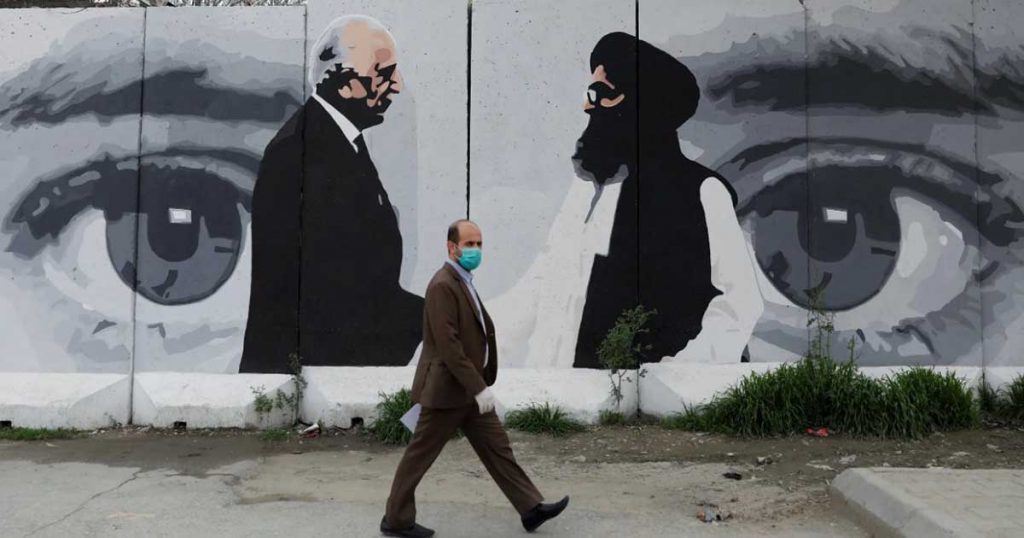Greater protection for civilians and reduced violence required for intra–Afghan talks: UN
In the first six months of 2020 more than 800 civilians were estimated killed and injured in deliberate attacks against civilians.

KABUL – With the prospect of peace talks starting this month between Afghan government and Taliban negotiators, the UN Assistance Mission in Afghanistan (UNAMA) urges parties to redouble efforts at protecting civilians from harm and de-escalating the conflict in order to save lives and create a conducive environment for the upcoming talks in Doha.
The Mission is particularly concerned by a recent spate of violent incidents in which members of Afghanistan’s civil society have been targeted. Deliberate attacks against religious leaders, healthcare workers, members of the judiciary, civil society activists, non-governmental organizations (NGOs) and journalists are both shocking and criminal. The UN looks to the authorities to bring those responsible for the attacks to account and emphasizes its determination to continue support to Afghanistan’s flourishing civil society sector.
“It’s taken enormous work and some brave decisions for Afghans to reach the point of being on the eve of unprecedented intra-Afghan negotiations,” said Deborah Lyons, the Secretary-General’s Special Representative for Afghanistan. “I encourage parties to lay the necessary foundation for the talks by showing their commitment to peace through immediate and concrete actions to protect civilians and reduce violence.”
“There are spoilers who do not wish to see an end to war,” said Lyons, who is also head of UNAMA. “No matter what tactics they employ to de-rail the peace process, they cannot be allowed to succeed.”
In the first six months of 2020, preliminary figures indicate more than 800 civilians were killed and injured in deliberate attacks against civilians. UNAMA attributed responsibility for approximately half of these civilian casualties to the Taliban.
UNAMA remains particularly concerned by the deliberate targeting of religious leaders, with 18 incidents verified this year (six in June); healthcare personnel, with 13 incidents verified this year (two in June); judiciary members, with 11 incidents verified this year (three in June); civil society activists, with six incidents verified this year; NGOs, with five incidents verified this year (one in June); and journalists, with three incidents verified this year.
June incidents that require further verification include that of 22 June in Kabul, when armed men on a motorbike opened fire on a vehicle, killing all five passengers inside, including one prosecutor, working in the Bagram detention facility; and the 27 June incident also in the capital, when an Afghanistan Independent Human Rights Commission staff member and driver were killed by an IED when they were traveling to work.
The United Nations reiterates that attacks deliberately targeting Afghanistan’s civilian population are serious violations of international humanitarian law that may amount to war crimes.
UNAMA draws attention to the continued harm to civilians from the use of indirect fire during ground engagements in civilian-populated areas that has caused roughly 25 per cent of civilian casualties in the second quarter of 2020. On 29 June, in Sangin district, Helmand province, dozens of civilian casualties resulted from mortars fired by the Afghan National Army in response to Taliban fire when the mortars missed the intended target and landed in a busy marketplace, according to UNAMA’s preliminary findings. Verification of civilian harm remains ongoing and UNAMA will provide updated civilian casualty figures in its midyear protection of civilians report in July. In addition, there has been a recent increase in civilian casualties from the Taliban’s use of pressure-plate IEDs; in the week following the Eid ceasefire, these victim-activated devices were the leading cause of civilian casualties.
The Mission’s continued call for an end to violence is also immediately linked to the need for all parties to provide the necessary focus and resources to combating the COVID-19 pandemic, a serious threat to everyone in Afghanistan.